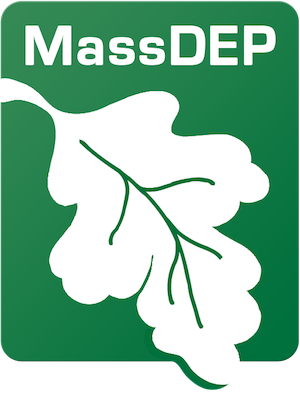- Massachusetts Department of Environmental Protection
Media Contact
Fabienne Alexis, Public Affairs Assistant Director / MassDEP
BOSTON — Building on its commitment to protect and improve water quality across the Commonwealth, the Healey-Driscoll Administration today announced awards of $246,000 in grants to four regional watershed coalitions and planning collaboratives in Massachusetts. The funding will spur innovation and information-sharing to assist local cities and towns in reducing pollution in stormwater that harms water quality.
The Massachusetts Department of Environmental Protection (MassDEP) selected and awarded projects from the Massachusetts Statewide Municipal Stormwater Coalition, the Charles River Watershed Municipal Stormwater Collaborative, the Town of Brookline, the City of Waltham and Northern Middlesex Council of Governments.
"Stormwater pollution affects the water we drink, the rivers we cherish and the health of our communities. We are tackling this challenge collaboratively, leveraging expertise to reduce pollution and protect vital natural resources," said MassDEP Commissioner Bonnie Heiple. "This funding empowers local solutions to protect public health, preserve clean water, and reduce flood risk. It’s a proactive step toward cleaner water and greater resilience against climate-driven flooding."
The programs funded by these grants will assist municipalities in meeting the requirements of the Municipal Separate Storm Sewer System (MS4) Permit. The MS4 Permit, issued by the EPA under the Clean Water Act National Pollutant Discharge Elimination System (NPDES), aims to reduce harmful pollutants from being washed into waters of the Commonwealth by storm drains. Municipalities are required to develop stormwater management programs that include public education and outreach, public participation, illicit discharge detection and elimination, management of construction site runoff, management of post construction site runoff, and good housekeeping measures to reduce pollution.
The groups receiving funding are:
Charles River Watershed Municipal Stormwater Collaborative, $57,900
Stormwater Control Measure Inspection & Maintenance Toolkit Phase II
This project will build on the Fiscal Year 2024 SCM inspection and maintenance (I&M) Storymap by adding graphics for up to four SCM types, highlighting key areas for inspection and providing guidance on communicating maintenance needs. Additionally, videos will be produced to demonstrate best practices for maintaining up to two SCMs. These 5-minute videos will serve as training tools for both municipal staff and private SCM owners, covering equipment needs and recommended maintenance frequencies.
Massachusetts Statewide Municipal Stormwater Coalition, $48,000
Think Blue Massachusetts Phase VI
Develop and produce a new video that focuses on actionable steps and solutions to common stormwater pollution issues. Develop a social media toolkit, expand available resources and educational materials on the Think Blue MA website by creating a resource library; and update the Think Blue MA website which is publicly accessible.
Town of Brookline and City of Waltham, $70,000
Catch Basin Cleaning Alternative Phosphorus Credit Study
This study will develop recommendations for an alternative catch basin cleaning phosphorus credit for communities in Massachusetts with Phosphorus Control Plan requirements. The study will evaluate the Chesapeake Bay TMDL credit as a potential alternative. This credit is based on mass-removal of catch basin sediments. The study will also measure the phosphorus concentration of sediments in four communities in the Charles River watershed. The study will be overseen a Technical Advisory Committee that includes EPA, UNH, CRWA and multiple communities broadening its overall impact.
Northern Middlesex Council of Governments, $70,500
Northern Middlesex Comprehensive Watershed Study: Phase 1- Stormwater Asset Inventory and Collaborative Mapping
This project will create a comprehensive GIS-based inventory of stormwater assets. The focused approach will enhance collaboration, streamline MS4 compliance, and improve water quality and lesson can be more broadly applied throughout Massachusetts. By integrating stakeholder insights and standardized data, it will identify and address key infrastructure vulnerabilities, setting the stage for informed and effective environmental management strategies.
For more information, please visit MassDEP’s Stormwater Permitting page online.
MassDEP’s mission is to protect and enhance the Commonwealth’s natural resources – air, water and land – to provide for the health, safety and welfare of all people, and to ensure a clean and safe environment for future generations. In carrying out this mission, MassDEP commits to address and advance environmental justice and equity for all people of the Commonwealth; to provide meaningful, inclusive opportunities for people to participate in agency decisions that affect their lives; and to ensure a diverse workforce that reflects the communities we serve.
###
